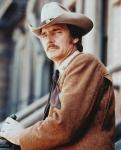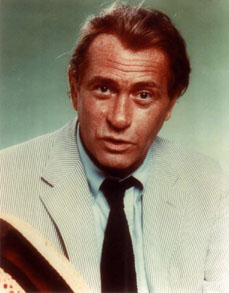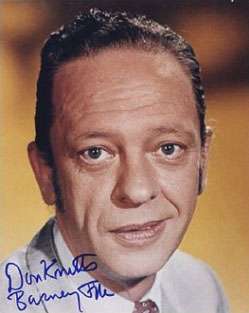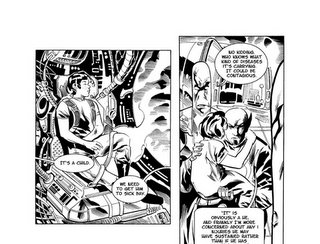Precious memories, unseen angels Sent from somewhere to my soul How they linger ever near me And the sacred past unfoldI tend to think of myself as metropolitan, educated, sophisticated, and eclectic--but the truth is, I'm not so far removed from the rural Georgia roots that are a part of my heritage, my lineage, and my life. I barely remember my great grandmother, my last link to the 19th Century; she was old when I was young, but she tied me to an earlier time, to a different way of life.
Precious Memories, how they linger
How they ever flood my soul
In the stillness of the midnight
Precious sacred scenes unfold
My grandfather--the one I remember well, my father's father--was a laborer who paid his way through a variety of jobs. He became the first entrepeneur in the family, but his way of life was thoroughly rural in nature: he had a worm farm, selling bait worms. I remember my visits, the weeks spent and my grandparents' house in the summer, digging through the rich, musty, almost fetid earth, rife with fat terracotta worms, sometimes helping to pack them into the round waxed-cardboard containers in which he would package the worms for sale.
I remember my other grandfather less well; he died when I was very young. I am told that I am like him in many ways. He was an avid reader, and I inherited a few of his books after he died in an auto accident on the backroads between Rockmart and Cartersville as he and a group of co-workers were travelling to their jobs at Lockheed in Marietta. He gave me socks as a gift once; I remember the socks, and I remember him giving them to me, although I don't know why the gift of socks should have stuck in a four-year-old's mind so indelibly.
I sometimes stayed with Aunt 'Dessa and Uncle Earl, who lived far in the country outside of Cedartown (which is in itself very rural, a small town that peaked in the early 1920's and went into slow decline by the 1950's). There was no indoor plumbing at their home, only a well and an outhouse; I adjusted to that life within hours and it never seemed inferior to our suburban way of life. I loved staying with them, although I couldn't tell you exactly what I did during those country summer days.
Precious father, loving mother Fly across the lonely years And old home scenes of my childhood In fond memory appear From my early childhood, country and gospel music were a part of my life. My parents weren't country or gospel fans, but their parents were, and its plain sounds resonated through my childhood. My cousins and I would sometimes mock the soaring, wide harmonies of Southern gospel, but we did so in a way that children inevitably mock the music that is not their own. What I didn't realize, though, was that in a way, it was my own. It had found a place in me, whether I consciously enjoyed it or not.
As I travel on life's pathway
Know not what the years may hold
As I ponder, hope grows fonder
Precious memories flood my soul
"Precious Memories" was an gospel song that, for reasons unkown to me, my mother held dear. She had remarked once that it was the song she wanted to have played at her funeral. At the time she said that, her funeral seemed epochs away; epochs turned out to be three decades, and when the time came, the song played softly in the background as we gathered to mourn and mark Mom's passage to the other side.
Precious Memories, how they linger
How they ever flood my soul
In the stillness of the midnight
Precious sacred scenes unfold
I heard it a thousand times in my childhood, but I never really listened to its lyrics until recently. It ended up on my iPod, and as I was walking Willie Nelson's version of the song began playing. I listened to the lyrics, found comfort in a familiar melody, and found myself rediscovering scores of my own precious memories.
Later that night, I picked up my somewhat battered Martin guitar and began picking out chords, discarding those that didn't work. At first I tried to make it too complicated, to add unnecessary changes. It's a simple song, comprised of simple chords with minimal, deliberate changes; I gradually realized that and found the song again in a trio of chords--C, G, and D--that were the first three chords I ever learned. And as I became more confidently convinced that these
were the chords, I found the song's essence, its plain country beauty filled with joy and sorrow and wistfulness and love and loss and hope and gratitude.
I wish I had learned the song long, long ago. I'm very self-conscious when it comes to playing guitar and in particular when it comes to singing--I was once told that I have one of the most non-musical voices ever possessed by a human being--but I wish I had played that song for my mother... while she was a live and as she passed over.
Now, when I sit on the sunroom at midnight, the moon obscured by low clouds, playing the chords and softly singing the song, I sing it for Mom. It's never too late...
In the still of the midnight
Echoes from the past I hear
Old time singing, gladness bringing
From that lovely land somewhere
 It appears that the celebrity "rule of threes" holds true; I was so convinced that it wouldn't work that I viewed my earlier post as a sort of paper tiger. However, as my good friends Charles and Lanny remarked in their replies to that post, Dennis Weaver died yesterday, making the third significant celebrity to die in so many days.
It appears that the celebrity "rule of threes" holds true; I was so convinced that it wouldn't work that I viewed my earlier post as a sort of paper tiger. However, as my good friends Charles and Lanny remarked in their replies to that post, Dennis Weaver died yesterday, making the third significant celebrity to die in so many days.







